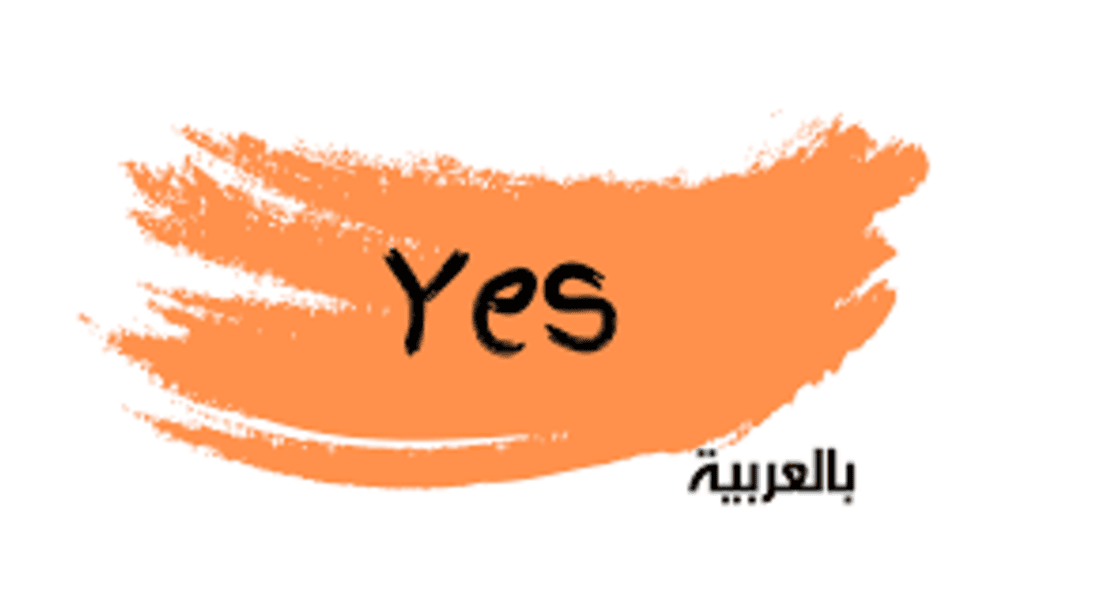How To Say Yes In Arabic
Table of Contents
ToggleArabic is one of the most beautiful and widely spoken languages in the world, known for its depth, complexity, and cultural richness. If you’re starting your journey into Arabic, learning simple yet vital words like “Yes” is a great way to begin. The word “Yes” in Arabic holds significance not only in communication but also in understanding the culture and traditions of Arabic-speaking countries. In this article, we’ll explore the many facets of saying “Yes” in Arabic, when and how to use it, and why learning Arabic online at Mishkah Academy can transform your linguistic skills.
What is Yes in Arabic?
“Yes” in Arabic is “نعم” (pronounced: na‘am). It is the standard way of affirming or agreeing in Arabic, widely used across different dialects and regions. Understanding its proper usage is essential for conversations, both formal and informal. Moreover, knowing “Yes” in Arabic can help you build the foundation for deeper connections with native speakers and foster meaningful communication.
How Do You Say Yes In Arabic?
While the formal term for “Yes” is “نعم” (na‘am), Arabic dialects often have their unique expressions for saying “Yes.” Here are a few common variations:
- نعم (Na‘am): The formal and universal term used across all Arabic-speaking countries.
- إيه (Eh): A casual and informal way to say “Yes,” common in Levantine and Egyptian Arabic.
- أيوة (Aiwa): Another informal variation frequently used in Egyptian Arabic.
- آه (Ah): Similar to “Yes,” used informally in various dialects, particularly in the Levant.
Each variation depends on the region, context, and level of formality, making it essential to understand these nuances, especially when engaging with native speakers.
When To Say Yes In Arabic?
“Yes” in Arabic can be used in a variety of scenarios, from daily conversations to formal agreements. Here are some common contexts:
- Agreeing to a request:
Example:- Person A: هل يمكنك مساعدتي؟ (Can you help me?)
- Person B: نعم (Yes).
- Confirming information:
Example:- Question: هل أنت طالب؟ (Are you a student?)
- Answer: نعم، أنا طالب. (Yes, I am a student.)
- Expressing consent or permission:
Example:- Parent: هل يمكنني استخدام هاتفك؟ (Can I use your phone?)
- Reply: نعم، بالتأكيد. (Yes, of course.)
Learning when and how to say “Yes” in Arabic can help you respond appropriately in different situations, fostering clearer communication.
Yes and No In Arabic!
“Yes” and “No” are two of the most essential words in any language, including Arabic. While “Yes” is “نعم” (na‘am), “No” is “لا” (laa). Here’s a quick comparison of their usage:
| English | Arabic (Formal) | Arabic (Dialectal) |
|---|---|---|
| Yes | نعم (Na‘am) | أيوة (Aiwa), إيه (Eh) |
| No | لا (Laa) | لأ (La’a) |
Being familiar with both “Yes” and “No” in Arabic allows for more precise communication, whether you’re affirming or negating something.
Join Arabic Conversation Course
If you’re eager to master Arabic and communicate confidently, the Arabic Conversation Course at Mishkah Academy is your ultimate solution. This course is specifically designed for non-Arabic speakers, focusing on real-life conversational skills, including commonly used words like “Yes” and “No.”
Key features of the course include:
- Native Arab tutors with extensive experience.
- Flexible timings tailored to your schedule.
- Engaging and interactive sessions to boost fluency.
Advantages of Learning Quran & Arabic Online at Mishkah Academy
Mishkah Academy is a leading platform for learning Arabic and Quran online. Here are some advantages of enrolling in their programs:
- Expert Tutors: Learn from certified native Arabic speakers and Quran teachers with vast teaching experience.
- Affordable Fees: Quality education at reasonable prices to make learning accessible to everyone.
- Personalized Learning: Courses are tailored to suit your learning pace and goals.
- Convenience: Learn from the comfort of your home at your preferred time.
- Free Trial: Experience the quality of education with a Free Trial Lesson before enrolling.
How to Enroll
Enrolling in Mishkah Academy is a simple and straightforward process. Follow these steps to get started:
- Visit the Mishkah Academy website.
- Browse the available courses and select the Arabic Conversation Course or any course that suits your needs.
- Sign up for a Free Trial Lesson to experience the teaching methodology.
- Complete the registration process and start your journey to fluency in Arabic.
Conclusion
Learning how to say “Yes” in Arabic, along with other essential phrases, is a fundamental step toward mastering this beautiful language. With Mishkah Academy, you can take your Arabic learning journey to the next level, gaining not only linguistic skills but also a deeper appreciation for the Arabic language and culture. Whether you’re looking to converse fluently or understand the Quran better, Mishkah Academy offers the perfect courses to meet your goals.
FAQs
How to spell yes in Arabic
Another use of the word “Yes” in Arabic is to express gratitude and appreciation. It is common to say “نَعْمَ، شُكْرًا” (na’am, shukran) when thanking someone. This expression is used to show appreciation and gratitude for something someone has done or said. It is a polite and respectful way to express thanks.
how to write yes in Arabic
Many common expressions in Arabic use the word “Yes” to convey a range of sentiments. For example, the phrase “نَعْمَ سِرّنَا” (na’am sirrna) means “Yes, we kept it a secret.” This expression is used when someone has been successful in keeping information confidential. Similarly, the phrase “نَعْمَ، سُمِّيتَ” (na’am, summita) means “Yes, you are named.” This is used to confirm someone’s name.
Arabic yes no
The use of “yes” and “no” in Arabic can also reflect cultural values and beliefs. In Arab societies, maintaining social harmony and avoiding conflict is highly valued. As a result, “no” is often softened or expressed more politely to avoid offence. Saying “yes” in response to an invitation or request is also seen as a sign of courteousness and generosity.
Translate yes Arabic
“Yes” is a common word used in many languages to express agreement or affirmation. In Arabic, “yes” is translated as “نعم” which is pronounced as “naam”. The word “نعم” is a simple yet powerful word that is often used in Arabic conversations, whether it’s formal or informal. In this essay, we will explore the meaning, usage, and cultural significance of the Arabic word “نعم”.
Arabic word for yes
“نعم” is a word that denotes a positive response to a question or statement. It is used to express agreement, approval, or confirmation. For example, if someone asks you, “Do you want tea?” You can simply say “نعم” to indicate that you do. The word is also used to affirm a statement. For instance, if someone tells you, “The weather is beautiful today,” you can say “نعم” to confirm that you agree with them.
Say yes in Arabic
The usage of “نعم” varies depending on the context. The word can be used in formal and informal conversations. In a formal setting, people tend to use “نعم” along with “نعم فعلا” (naam fa’alan), which is more emphatic than simply saying “نعم”. In informal conversations, people use “نعم” more frequently and tend to shorten it to “نم” for convenience.
Yes I do in Arabic
The Arabic language is rich in cultural significance, and the word “نعم” is no exception. The use of “نعم” in Arabic culture is seen as a sign of politeness, respect, and honor. In many Arab countries, people use the word “نعم” instead of “yeah” or “yes” to show their appreciation for the conversation partner. Moreover, Arabic speakers use “نعم الله” (naam Allah) as a form of thanksgiving to God for his blessings.
Yes I know in Arabic
the word “نعم” has a deep religious significance in Islam. The Quran, the holy book of Islam, uses the word “نعم” extensively to depict God’s blessings. Muslims believe that whenever they receive a blessing, they should say “الحمد لله” (Alhamdulillah) which means “All praise is for God”. In some Islamic traditions, Muslims are encouraged to say “نعم” three times after a meal to show their gratitude to God.
Yes in Arabic pronunciation
Yes is a word that has a powerful impact on our daily lives. It can signify approval, agreement, or simply confirm that something is true or will happen. In Arabic, the word for yes is “naam”. Arabic is spoken by approximately 420 million people worldwide, making it the fifth most spoken language in the world. The use of “naam” varies across different dialects and contexts.
Yes in Arabic slang
In the classical Arabic language, “naam” is the standard word for yes. It is used to confirm agreement or to respond positively to a question. This formal usage is often seen in language textbooks and official documents. In everyday speech, however, Arabic dialects often use variations of “aywa” or “eeh” instead of “naam.” These dialectal variations are more casual and commonly used in conversation.
Yes in Arabic translation
Arabic is a language that is rich in nuances and many words that appear simple at first glance have multiple meanings. “Naam” is no exception. Depending on the context, “naam” may also express surprise or incredulity. For example, if one is presented with an unexpected gift, they may respond with “naam?” to express their surprise and gratitude.
Yes in Arabic writing
In some Arabic speaking countries, especially in the Gulf region, it is customary to use “naam” in conversation as a form of politeness. Responding with “naam” instead of a simple “yes” is considered more respectful and courteous. This take on using “naam” highlights the importance of Arabic culture’s emphasis on politeness and respectful communication.






